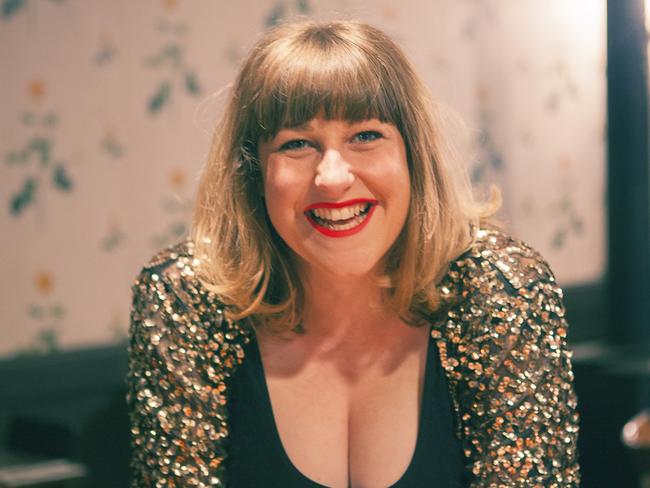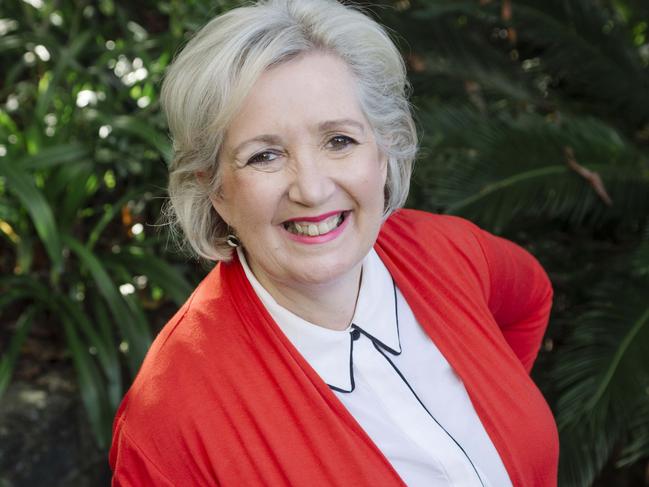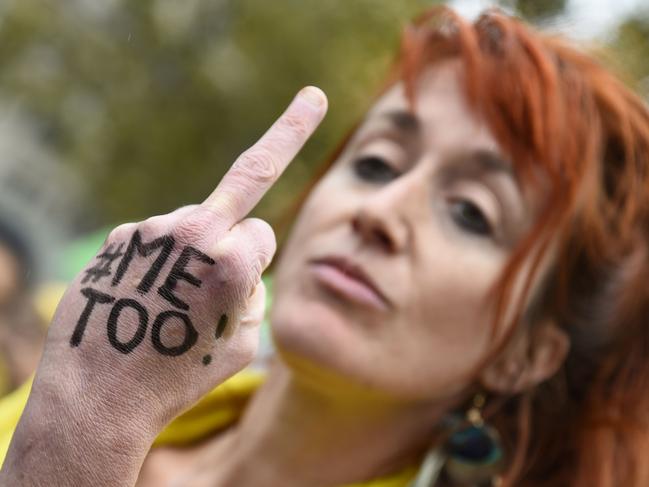The days of bra burning protests and angry coffee shop poetry readings are gone and in their place is the power and instant impact of the internet.
For the first time since the 1970s, feminism is popular again and commanding the world’s attention.
Women are sharing their own struggles through #metoo and #timesup across all social media networks, and through mass protests, boycotts and public shamings.
Hollywood, where it all started with the outing of movie producer Harvey Weinstein as an alleged serial sex abuser, has embraced it with powerful industry players across the spectrum falling like dominoes.
We’ve never seen such grassroots support for women, and from all generations
Earlier this month the Golden Globes ceremony was turned into a parade of black frocks.
And a Twitter campaign prompted actor Mark Wahlberg to donate to charity his $US1.5 million All The Money In The World retake fees, when it was revealed co-star Michelle Williams was paid just hundreds of dollars.
But while women have found a new voice to reveal abuse by men in positions of power, what comes next? And will this fresh wave of feminism be able to fulfil the expectation it has created?
Natalya Lusty, associate professor at Sydney University’s Gender Studies department, describes it as the fourth wave of feminism — emerging as a mirror of the same issues women have always faced but with a new impetus.

“I think that social media has had a huge impact on what we are seeing today with #metoo and #timesup,” she says.
“We saw powerful street protests last year with the March on Washington and the various Sister marches around the world. That, coupled with a global online hashtag feminism, is what is distinct about this wave of feminism.”
The street protests attracted some 2.6 million women marchers around the world.
“We’ve never seen such grassroots support for women, and from all generations. Women across the globe were getting out and marching, and I found that powerful,” she says. “Feminism is now reaching across generations and even though we don’t agree 100 per cent of the time we are starting to support each other, and the sister marches across the world and the various online movements have shown the resurgence of a broad feminist movement.”
The women’s suffrage movement that began in the late 1800s and the period of growing independence and militant protests in the ’60s and ’70s are regarded as the popular eras of feminism. What academics call the third wave from the 1990s onwards encompassed things such as abortion rights and the fight for equal pay.
Karen Pickering, a co-founder of the Girls On Film Festival and an organiser of the annual SlutWalk, is unsure herself about where the current enthusiasm for feminism will end.

“A lot of people are really embracing the movement on a temporary base, sort of you know hashtag activism, but people need to actually make appropriate changes,” she says.
“The movement plays an important role on consciousness around the sexual harassment of women, and is really opening up debate, but this debate can’t just be the beginning or the end, it needs to continue.”
But the #metoo movement has also been accused of branding all allegations, most of them disputed, as of equal importance.
When Parks and Recreation star Aziz Ansari was recently accused of pressuring a 22-year-old girl into a sex act, he claimed the encounter was consensual, and opinion on #metoo divided over how to treat it.
“It’s always a risk the way information is portrayed and the way it moves online, but I’m worried that we can get really distracted by that specifically,” Pickering says.
“And this is just ‘another’ bad sexual encounter in day to day life; our society is pretty broken when it comes to sex.”
According to Jane Caro, while Ansari’s actions might not be in the same bracket as the accusations against Weinstein, it is an important conversation to have for the next generation of girls to say enough is enough.

“In the case of Ansari, he had the excuse of not understanding non-verbal cues, and I think that’s the thing. We need to stop downplaying women and excusing men for their behaviour,” she says.
“It’s taken 50 years to get to this next wave of feminism and we’ve changed in ways we couldn’t believe over this time, but now we are saying to men that it’s your time to change.”
And it’s the men’s attitude towards this time for change that Caro believes is the key, those that are both for the campaign and also those who are choosing to leave the conversation of equality all together.
“Men who don’t like these campaigns may be able to move away from the conversation, but they can’t escape the world, if they refuse to open their mind, they are diminished,” she says.
“It’s not an attack on men, it’s an opportunity, and what women are really saying to men is that we are just as human as you, when you treat me badly it’s not OK. If these guys are feeling shameful, well we’ve been feeling shamed for 2000 years.”

And we have seen change. We’ve seen Kevin Spacey dumped from his role in All The Money In The World along with the cancellation of House Of Cards. And that’s great for Hollywood, but what about for the average woman who wants to see as powerful changes in her world?
It’s a question that has vexed feminist writer Eva Cox, and made her concerned about the potentially erratic “witch hunt” future of this “comeback of feminism”.
“Sometimes there’s some movement in which the whole idea is, you know, ‘Get the men, punish them, and hang them up by their balls and make them an example and then somehow the men will behave’ — and I don’t think that’s the solution at all,” Cox says.
“We just need a much broader discussion. How can we make these issues better and teach people to think, as opposed to just punish them? We need to start talking.”
And while it may seem like a hard task to get the world talking about each level of socially and culturally ingrained patriarchy that not only exists in Hollywood, but in our streets, homes, bars, nightclubs and workplaces, for Karen Pickering the solution is as easy as ABC.
“Sex education needs an overhaul. We can’t just teach about pregnancy and STIs, we also need to talk about consent, and about sexual pleasure and both parties having their needs met,” she says.
“We have kids from the ages of five to 17, which are such critical ages — we need to teach boys how to be respectful to both girls and themselves when it comes to sex, and it’s long overdue, and it’s also achievable.
“It affects every person and would make the lives of every single Australian so much better; it’s just a no-brainer.
“We live in a world where men are growing up without a full understanding of content, and respect for women, along with desire and pleasure as an adult, and it’s just more and more widespread.”


What’s next for Ward? Colleagues spell end for MPs political career
Convicted rapist Gareth Ward could be suspended from parliament next month, with the Minns government vowing to take action after the MP was found guilty of sexually abusing two men. Here’s what to expect.
Latham accuses ex-partner of ‘weaponising’ court system
In one of his strangest public appearances to date, beleaguered MP Mark Latham fronted media in parliament with his two dogs to accuse his ex-girlfriend of “weaponising” the court system against him. WATCH the video